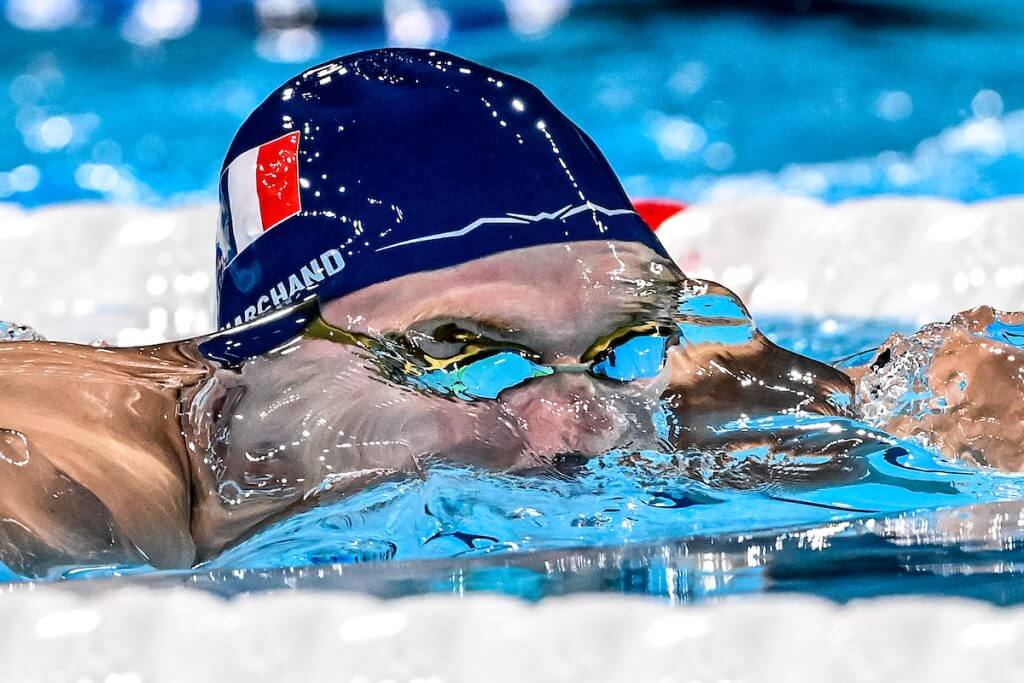Bypassing Short Course Worlds a Difficult But Sensible Decision for Leon Marchand, Kaylee McKeown and Others

Bypassing Short Course Worlds a Difficult But Sensible Decision for Leon Marchand, Kaylee McKeown and Others
Four months after the conclusion of the Paris Olympics, another swimming competition will bear the title of global championship as World Aquatics hosts the biennial Short Course World Championships over six days at Duna Arena in Budapest. But as is often the case with the 25-meter title meet, especially when held in an Olympic year, many of the world’s top stars will not be in attendance.
Leon Marchand was the most recent to announce his withdrawal from the event, saying he was “exhausted” after a busy year of competition. In addition to a historic Olympic campaign, where Marchand became just the third man after Mark Spitz and Michael Phelps to win four individual gold medals at one Games, Marchand led Arizona State to the program’s first-ever NCAA team title with three individual wins and contributions to two relay wins, and he also raced at all three World Cup stops, setting his first short course world record in the 200 IM.
Of the four other swimmers who won multiple individual golds in Paris (all women), only Summer McIntosh is a confirmed attendee at Short Course Worlds. Kaylee McKeown was originally announced on Australia’s team, but she declined the spot shortly thereafter. McKeown cited a grueling run of training and competitions that “has been an onslaught both physically and mentally.” She added, “Sometimes you just need a break.”
Ariarne Titmus and Mollie O’Callaghan were never part of the Aussie roster for the event, and of all Australian individual medalists from the Games, only sprinter Meg Harris is part of the roster for Short Course Worlds. Of the American swimmers who won individual gold in Paris, only Kate Douglass is part of the U.S. roster for the meet, with Katie Ledecky and Bobby Finke never entered and Torri Huske pulling out.
While most swimming fans would eagerly welcome a power-packed follow-up to the Olympics, do not blame any of the swimmers who chose to pass on the meet. They made the decisions that best line up with their own ambitions for their lives, as swimmers and individual people.
Remember that for years leading into the Paris Games, these swimmers were singularly-focused on their competitive goals, hitting times in the long-course pool and hoping those marks would yield Olympic medals. Achieve all those goals or not, the pursuit is a draining one, necessitating a break at the conclusion to reset if a swimmer has hopes of continuing to pursue global-level medals for the long haul, let alone another four years until the 2028 Olympics in Los Angeles.
Giving full devotion to a single endeavor week after week, month after month, for years at a time would leave anyone overwhelmed and ready to check out completely. These moves by Marchand, McKeown and others are designed to prolong their careers, especially given the relatively low stakes of a Short Course World Championships. As of now, both plan to be ready for next summer’s championship season, but they will not overdo their intensity too early at the cost of jeopardizing longer-term goals.
Of course, there will still be plenty of highlights to the Budapest meet. Individual gold medalists Hubert Kos of Hungary and Lukas Märtens of Germany are confirmed for the meet while the United States’ Regan Smith, the winner of three individual silvers at the Paris Games, will be favored for a backstroke sweep with a chance to lower the 100 and 200-meter world records she set at the World Cup finale in Singapore. Speaking of Americans, expect big performances from Douglass and Gretchen Walsh, the latter of whom will bring her short course dominance from NCAA swimming to the world stage.
For the swimmers who do compete, making the trip to Budapest fit with their ambitions. Perhaps these swimmers and coaches decided that setting goals for Short Course Worlds would help them return to training and provide a springboard to launch them into 2025. Different variables brought the opposite decision for these swimmers: good for them.
Will these winners be undoubtedly the best in the world? No, just like the winners of the lightly-attended long course edition of the World Championships in February were taken with a grain of salt. Most of the world’s best had their focus squarely on preparation for Paris. Of course, that should not take away credit from those swimmers who do show up and wrack up medals for significant accomplishments. These are legitimate international medals, and any records set should be celebrated as such.
But at this point in the cycle of global swimming, so soon after an Olympics that will surely be baked into the sport’s history as legacy-defining, the Short Course World Championships simply cannot be such a priority for a medal-winning swimmer that they would jeopardize their future goals and mental health to compete. Regardless of a swimmer’s decision, in or out, there should be no judgement from the outside as they begin the long push toward 2028.



